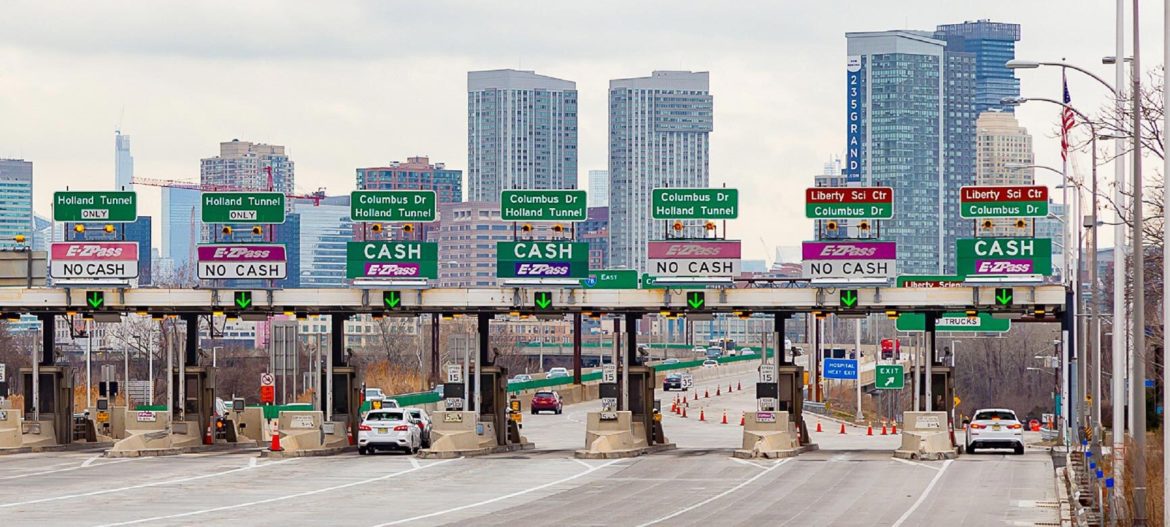Transportation, GOVERNMENT THAT WORKS
NJ.com: Our tolls are paying for NJ Transit’s failures

By Regina M. Egea
A dysfunctional Motor Vehicle Commission operation since last July. An unnecessary gas tax last August. Double-digit toll hikes in September. How much is New Jersey’s middle class expected to take lying down?
The latest indignity? As NJ.com’s Larry Higgs reported last week, the New Jersey Turnpike Authority (NJTA) board is scheduled to approve a tenfold increase and divert $1.22 billion in toll money to the operating budget of NJ Transit over the next three years.
Since last year, motorists on the Turnpike and Parkway have been paying higher tolls of 36% and 27% respectively under the promise of road improvements. The increases were approved by the board and Gov. Phil Murphy at the height of the pandemic in a truncated process that was roundly criticized for a lack of public review and transparency. As Senator Kip Bateman rightfully noted at the time, “Bureaucrats who control our highways are quietly fast-tracking massive toll hikes on New Jersey drivers when nobody is looking… There has been nothing transparent about the process.”
While there are environmental benefits from diverting revenue from tolls to improve mass transit service if that reduces cars on the road, this is an unprecedented increase from the current subsidy of $129 million annually. Residents have good reason to be skeptical that the additional funds will do anything beyond fund the status quo at NJ Transit.
The agency restored full-service last summer even though ridership lagged at a fraction of pre-pandemic levels. The agency’s own survey indicates that significantly decreased ridership will be a long-term issue, especially among trans-Hudson commuters now working from home. NJ Transit CEO Kevin Corbett is anticipating ridership will return to 60% of pre-COVID levels by the end of this year and to approximately 75% next year, with little elaboration on those estimates beyond vague references to vaccination rates along with school and business re-openings. He additionally committed to no transit fare increases through 2024, ensuring the requirement that New Jersey toll payer’s subsidy must remain in place.
Across our state, our businesses and families have had to make adjustments to their plans because of the impact of COVID-19. NJ Transit has been shielded from that reality along with much of our government at every level. Instead of right-sizing the agency and following the lead of where our jobs will be located based on new office arrangements, NJ Transit remains cemented in the past, haplessly waiting for a return to the world of February 2020.
Similarly, in an act of management malpractice at the Motor Vehicles Commission, the state was remarkably slow to move basic transactions online. When offices did reopen last July, most customers were required to wait in line a full day, with many camping out overnight. The malpractice occurred with the decision to furlough MVC workers in July, just as they returned to the office after sitting idle since March.
In yet another missed opportunity, MVC’s workforce was not re-sized to reflect the increased online capacity because the governor agreed to the furlough plan with a no-layoff guarantee last summer. Once again, taxpayers are stuck double-paying for IT automation, and the workforce intended to be eliminated all because of Corzine-like deference to union demands by Governor Murphy.
Last week, a report card issued by the White House rated New Jersey’s infrastructure as D+. That echoes a D+ rating by the American Society of Civil Engineers (ASCE). As our research has documented, the current administration in Trenton has failed to deliver on promised infrastructure improvements as the gas tax has increased 37% since Governor Murphy took office.
The governor and NJTA officials committed to a robust $24 billion capital plan that would improve highway access, not a “bait and switch.” There is no doubt that our state needs infrastructure investment. Bailing out NJ Transit from adjusting to the new realities of 2021, like our small business owners and laid off residents have all had to do for the last 14 months, is an election year tactic that is ironically the most transparent move of all.
